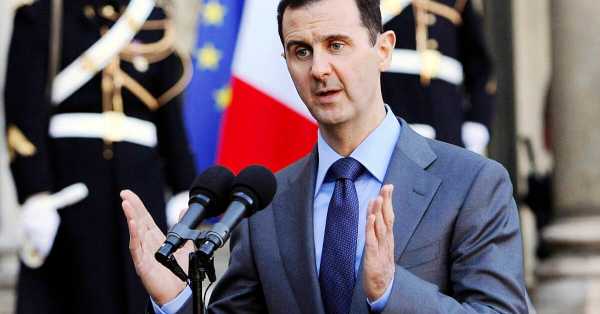
France's top court will rule on Friday on whether it can strip the immunity of Bashar al-Assad, the former Syrian leader now in exile in Russia, because of the severity of the evidence against him collected by Syrian activists and European prosecutors.
Rights activists and lawyers say that if the Cassation Court judges lift Assad's immunity, it could pave the way for his trial in absentia for chemical weapons attacks in Ghouta in 2013 and Douma in 2018, and set a precedent that could bring other government leaders involved in atrocities to justice.
Assad has not hired lawyers to defend the charges and denies involvement in the chemical attacks.
A ruling against Assad would be a “huge victory for the victims,” said Mazen Darwish, president of the Syrian Media Center, which collects evidence of war crimes.
“It's not just about Syrians, it will open the door to victims from any country, and it will be the first time that a national investigating judge will have the power to issue an arrest warrant for a president during his term.”
He said the decision could allow his group to legally pursue regime members, such as bringing a money-laundering case against former Syrian Central Bank chief and Economy Minister Adib Mayaleh, whose lawyers say he enjoyed immunity under international law.
Syria was ruled for more than 50 years by Hafez al-Assad and then his son Bashar. During the Arab Spring in 2011, the country of 23 million people revolted against the tyrannical regime, sparking a brutal 13-year civil war that has left more than half a million people dead, according to the Syrian Observatory for Human Rights.
Millions more fled to Lebanon, Jordan, Turkey and Europe.
The Assad dynasty manipulated sectarian tensions to stay in power, leading to renewed violence in Syria against ethnic minorities, despite promises that the country's new leaders would create a political future for Syria that would include and represent all of its communities.
According to Mariana Peña, a human rights lawyer at the Open Society Justice Initiative, which helped bring the case to court, the court's decision to strip Assad of immunity could set a “significant precedent” that “could really set the stage for potential other cases of immunity being lifted in national jurisdictions.
With the International Criminal Court having issued arrest warrants for leaders accused of atrocities such as Vladimir Putin in Ukraine, Benjamin Netanyahu in Gaza and Rodrigo Duterte in the Philippines, the French judges' decision could expand the legal basis for prosecuting not only ousted and exiled leaders but also those currently in power.
In 2013, the Syrian government denied it was behind the Ghouta attack, a charge the opposition rejected because Assad's forces were the only side in the brutal civil war with sarin.
The United States subsequently threatened military retaliation, but Washington made a deal with Moscow under which Assad gave up his stockpile of chemical weapons.
Sourse: breakingnews.ie






